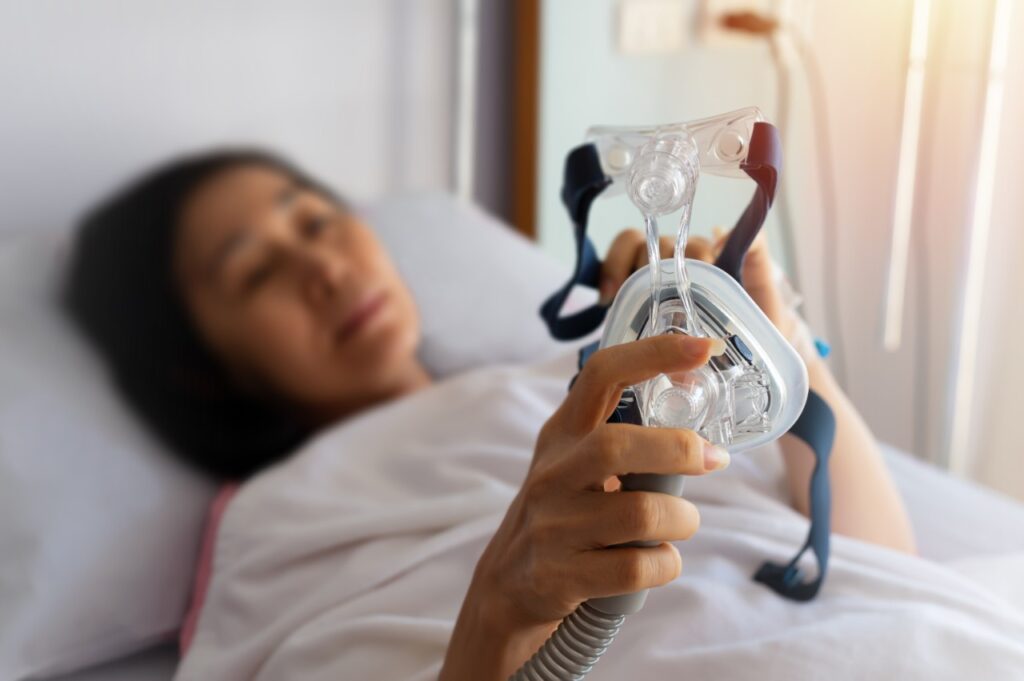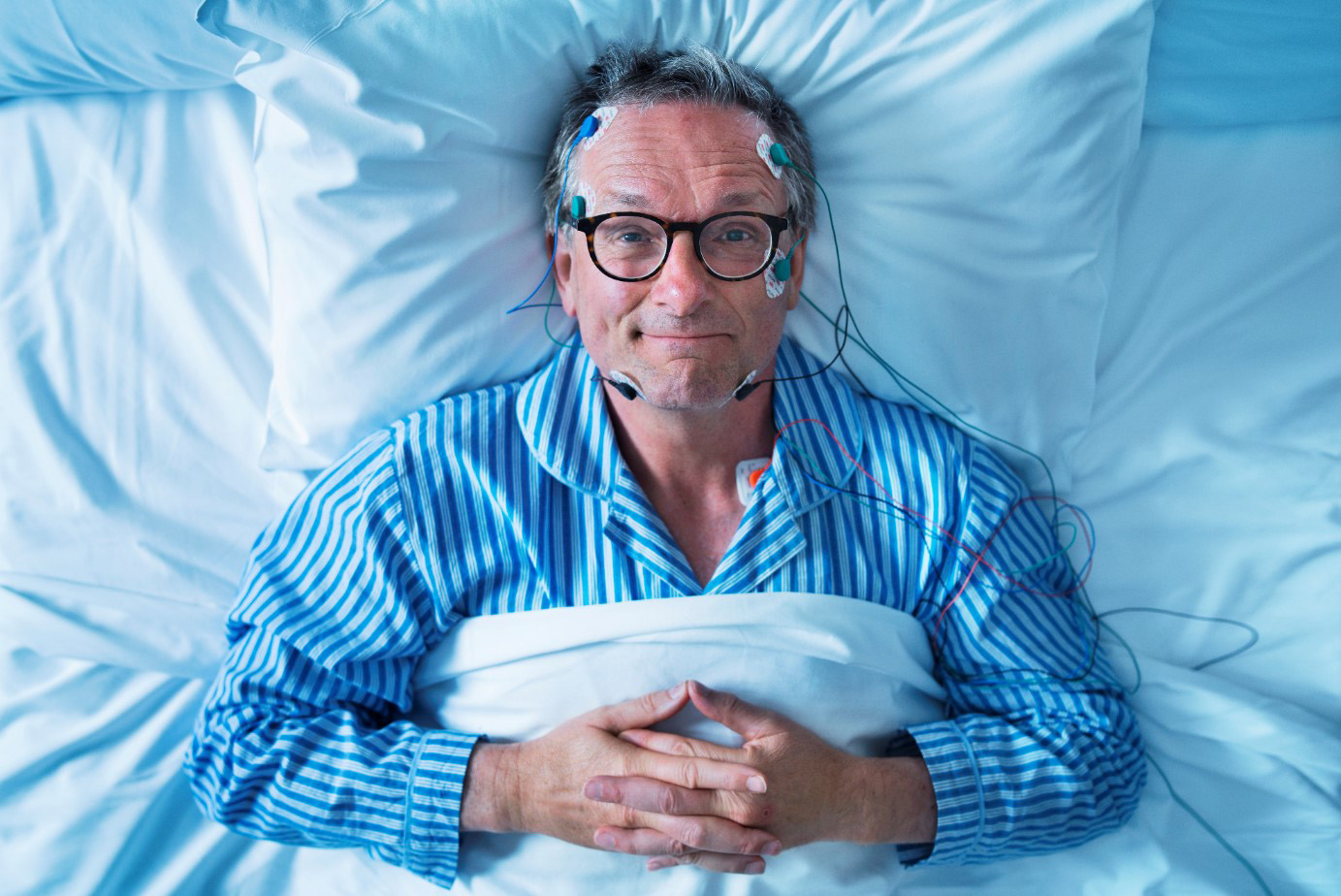Sleep disorders affect thousands of Sydney residents, disrupting vital rest patterns and impacting daily life in significant ways. From chronic fatigue to reduced cognitive function, these conditions can severely compromise physical health, mental wellbeing, and workplace productivity.
Common sleep disorders in Sydney include:
- Obstructive sleep apnea
- Chronic insomnia
- Narcolepsy
- Restless legs syndrome
The effects of poor sleep extend beyond mere tiredness – research links untreated sleep disorders to serious health conditions including:
- Cardiovascular disease
- Type 2 diabetes
- Depression
- Impaired immune function
Early diagnosis through professional sleep studies represents a crucial step toward better health outcomes. These non-invasive diagnostic tools help identify specific sleep disorders and guide appropriate treatment plans. Modern sleep studies, available both at home and in clinical settings across Sydney, provide detailed insights into sleep patterns and breathing irregularities.
Proper diagnosis leads to targeted interventions, helping Sydney residents reclaim restful nights and energetic days. The path to better sleep often begins with recognising symptoms and seeking professional evaluation through sleep studies.
Understanding Sleep Disorders Common in Sydney
Sleep disorders affect thousands of Sydney residents, manifesting in various forms that disrupt normal sleep patterns and daily functioning. Here are the most prevalent sleep disorders identified in the Sydney metropolitan area:
Sleep disorders Sydney significantly impact daily life, yet many Sydney residents hesitate to seek professional help. The path to better sleep health starts with recognising symptoms and taking action through proper diagnostic measures.

1. Obstructive Sleep Apnea (OSA)
Obstructive Sleep Apnea (OSA) is a serious sleep disorder characterised by repeated breathing interruptions during sleep. These interruptions occur when the muscles at the back of the throat relax excessively, causing a blockage in the airway. OSA often goes undiagnosed, leading to various health issues if left untreated.
Read more at: Brisbane Sleep Studies How to Prepare for Your Home or In-Lab Sleep Test
Key Features of OSA:
- Causes include throat muscles relaxing and blocking airways
- Often accompanied by loud snoring and gasping sounds
2. Insomnia
Insomnia is a common sleep disorder that affects individuals of all ages. It is characterised by difficulty falling asleep or staying asleep throughout the night, resulting in non-restorative sleep. Insomnia can be caused by various factors such as stress, anxiety, depression, or underlying medical conditions.
Types of Insomnia:
- Acute Insomnia: Short-term insomnia lasting for a few days to weeks
- Chronic Insomnia: Long-term insomnia lasting for months or even years
3. Narcolepsy
Narcolepsy is a neurological disorder that affects the brain’s ability to regulate sleep-wake cycles. It is characterised by excessive daytime sleepiness and uncontrollable episodes of falling asleep during the day. Narcolepsy may also involve sudden loss of muscle tone (cataplexy) triggered by strong emotions.
Symptoms of Narcolepsy:
- Sudden, uncontrollable episodes of daytime sleepiness
- Potential muscle weakness triggered by strong emotions
- Disrupted night-time sleep patterns
4. Restless Legs Syndrome (RLS)
Restless Legs Syndrome (RLS) is a condition characterised by uncomfortable sensations in the legs, accompanied by an irresistible urge to move them. These sensations typically worsen during evening hours or when sitting or lying down for long periods.

Effects of RLS:
- Uncomfortable sensations in legs causing an urge to move
- Symptoms typically worsen during evening hours
- Movement temporarily relieves discomfort
5. Sleep Paralysis
Sleep paralysis is a phenomenon that occurs when an individual is unable to move or speak while falling asleep or waking up. During an episode of sleep paralysis, one may experience hallucinations or a feeling of pressure on their chest. Read more about paralysis at https://www.medicalnewstoday.com/articles/paralysis
Characteristics of Sleep Paralysis:
- Temporary inability to move or speak while falling asleep or waking
- Episodes typically last seconds to minutes
- Can be accompanied by hallucinations or sensing a presence
These disorders significantly impact sleep quality through:
- Fragmented sleep cycles
- Reduced time in deep sleep stages
- Irregular sleep-wake patterns
Common daytime symptoms include:
- Persistent fatigue
- Difficulty concentrating
- Mood changes
- Decreased work performance
- Memory problems
- Increased risk of accidents
For those seeking help with these conditions, Sleep Solutions Australia offers a range of resources and treatments tailored to individual needs.
When to Consider a Sleep Study
Recognising the right time to undergo a sleep study helps identify and address potential sleep disorders early. Several key indicators signal the need for professional sleep assessment:
Physical Symptoms During Sleep
- Loud or chronic snoring
- Witnessed pauses in breathing
- Gasping or choking episodes
- Frequent tossing and turning
- Night sweating
- Sleep talking or walking
Daytime Warning Signs
- Persistent morning headaches
- Difficulty concentrating at work
- Memory problems
- Unexplained irritability
- Falling asleep during daily activities
- Struggling to stay awake while driving
High-Risk Categories
- Body Mass Index above 30
- Neck circumference larger than 43cm in males, 41cm in females
- Family history of sleep disorders
- Existing cardiovascular conditions
- Type 2 diabetes
- Resistant hypertension
Sleep studies become particularly crucial for suspected cases of specific disorders requiring specialised diagnostic tests:
Obstructive Sleep Apnea Assessment
- Overnight monitoring of breathing patterns
- Blood oxygen level measurements
- Heart rate variability tracking
Narcolepsy Diagnosis
- Multiple Sleep Latency Test (MSLT)
- Polysomnography recordings
- Brain wave pattern analysis
Professional sleep studies are available across various locations in Australia. For instance, sleep studies in Perth offer comprehensive evaluations. Similarly, Brisbane, Melbourne, and Hobart also provide professional sleep studies that allow for accurate diagnosis and appropriate treatment planning based on individual symptoms and circumstances.
The Process and Benefits of Sleep Studies in Sydney
Sleep studies in Sydney offer patients flexible diagnostic options through both clinical and home-based settings. Home-based sleep studies have gained popularity due to their convenience and accessibility, allowing patients to undergo testing in familiar surroundings.
How Sleep Studies Work
During a sleep study, sophisticated monitoring equipment records vital physiological parameters:
- Brain wave activity (EEG)
- Eye movements
- Heart rate and rhythm
- Blood oxygen levels
- Breathing patterns
- Body position
- Muscle activity
Home-Based Sleep Studies
Home-based sleep studies utilise portable diagnostic devices that patients can set up independently. These devices capture essential data while maintaining comfort and natural sleep patterns. The equipment includes: Click here to find more about comfort.
- A small recording device
- Sensors for oxygen levels
- Breathing monitors
- Position sensors
Clinical Sleep Studies
Clinical sleep studies remain essential for complex cases requiring detailed monitoring or when home studies prove inconclusive. These laboratory-based tests provide additional measurements and real-time observation by sleep technicians.
Support from Air Liquide Healthcare
Air Liquide Healthcare, Australia’s largest facilitator of home sleep studies, provides comprehensive support throughout the diagnostic process. Their services include:
- Equipment delivery and setup guidance
- Remote monitoring capabilities
- Data analysis by qualified sleep technicians
- Results interpretation by certified Sleep Physicians
Advantages of Home-Based Sleep Studies
The advantages of home-based sleep studies extend beyond comfort:
- Cost-effective compared to in-laboratory studies
- Minimal disruption to daily routines
- Natural sleep environment
- Immediate access to testing
- Reduced waiting times
In addition to Sydney, sleep studies are also available in Adelaide and Canberra, providing more options for individuals seeking quality sleep diagnostics across Australia.
Integrated Patient Pathway for Diagnosis and Treatment
The patient pathway for sleep disorders in Sydney follows a structured approach designed to deliver comprehensive care and optimal health outcomes. This systematic process begins with an initial consultation where patients discuss their symptoms and medical history with healthcare professionals.
A typical patient pathway includes:
- Initial Assessment: Comprehensive evaluation of sleep-related symptoms, medical history, and lifestyle factors
- Diagnostic Testing: Home-based or clinical sleep studies to gather vital physiological data
- Results Review: Sleep Physician analysis of test results and formal diagnosis
- Treatment Planning: Development of personalised treatment strategies based on diagnosis severity
- Therapy Initiation: Introduction to appropriate treatments, such as CPAP therapy setup and education
- Regular Monitoring: Scheduled follow-up appointments to track progress and adjust treatment
Sleep Physicians play a crucial role throughout this journey, providing expert interpretation of sleep study results and determining the most effective treatment approaches. Their specialised knowledge ensures accurate diagnosis and appropriate therapy selection.
The collaborative nature of sleep disorder management involves multiple healthcare professionals working together:
- Sleep technicians conducting diagnostic studies
- Clinical educators providing therapy support
- Medical specialists managing complex cases
- Primary care physicians coordinating ongoing care
This integrated approach allows for continuous assessment and adjustment of treatment strategies, ensuring patients receive optimal care tailored to their specific needs and circumstances.
Treatment Options Following Diagnosis
Effective treatment of sleep disorders requires a multi-faceted approach tailored to each patient’s specific condition and lifestyle needs.
Lifestyle Modifications
- Establishing consistent sleep-wake schedules aligned with natural circadian rhythms
- Creating an optimal sleep environment – dark, quiet, cool temperature (18-22°C)
- Reducing caffeine intake, particularly after 2pm
- Limiting alcohol consumption and avoiding heavy meals before bedtime
- Implementing a “digital sunset” – no screen time 1-2 hours before bed
Sleep Hygiene Practices
- Regular exercise, but not within 3 hours of bedtime
- Exposure to natural daylight during morning hours
- Relaxation techniques including deep breathing, progressive muscle relaxation
- Mindfulness meditation or gentle yoga before bed
Cognitive Behavioural Therapy for Insomnia (CBT-I)
CBT-I addresses thought patterns and behaviours that interfere with sleep through:
- Sleep restriction therapy
- Stimulus control
- Cognitive restructuring
- Relaxation training
Medical Interventions
- CPAP therapy for sleep apnoea patients
- Short-term sleep medications for acute insomnia
- Antidepressants for cases involving mood disorders
- Melatonin supplements for circadian rhythm disorders
Specialised Equipment
- Mandibular advancement devices for mild sleep apnoea
- Light therapy boxes for circadian rhythm disorders
- White noise machines for environmental sleep disruptions
Support Systems and Resources Available in Sydney
Sydney residents have access to comprehensive financial support for sleep disorder diagnosis and treatment. Medicare provides coverage for sleep studies when patients meet specific Medical Benefits Schedule (MBS) guidelines, including:
- Bulk-billing options at participating sleep clinics
- Coverage for up to three diagnostic sleep studies per year
- Rebates for consultations with sleep specialists
Private health insurance extends additional benefits through various CPAP therapy packages:
- Equipment purchase or rental subsidies
- Mask and accessory replacements
- Regular maintenance services
- Follow-up consultations
Local healthcare providers offer specialised support:
- Sleep Disorder Clinics: Professional guidance and ongoing monitoring
- Support Groups: Peer connections and shared experiences
- Equipment Suppliers: Technical assistance and device maintenance
- Allied Health Services: Dietary advice and exercise programs
Air Liquide Healthcare maintains an extensive network across Sydney through its sleep brands – SNORE Australia, Healthy Sleep Solutions, Mycroft, Complete Care, and Sleep Disorder Australia (SDCA) – delivering accessible diagnostic services and therapy support to local communities.
Increasing Awareness and Improving Health Outcomes in Sydney
Healthcare providers across Sydney are becoming more aware of how sleep disorders can greatly affect public health. Medical professionals are now including sleep health assessments in regular check-ups, showing a significant change in how preventive healthcare is approached.
Recent initiatives by Sydney’s healthcare community include:
- Educational workshops for general practitioners to enhance their ability to identify sleep disorder symptoms
- Public health campaigns targeting high-risk populations
- Workplace wellness programs addressing sleep health
- School-based education promoting healthy sleep habits from an early age
Local medical centres have put screening protocols in place to identify potential sleep disorders during routine consultations. These protocols involve:
- Standardised questionnaires about sleep patterns
- Assessment of daytime fatigue levels
- Documentation of sleep-related symptoms
Sydney’s sleep specialists are actively reaching out to the community through:
- Health fairs and community events
- Social media awareness campaigns
- Partnerships with local organisations
- Distribution of educational materials in multiple languages
The Australian Sleep Health Foundation reports increased engagement from Sydney residents seeking information about sleep disorders. This growing awareness leads to earlier intervention and better health outcomes for individuals affected by sleep-related conditions.
Healthcare providers continue to emphasise the link between quality sleep and various aspects of health, such as mental wellbeing, cardiovascular health, and cognitive function. This comprehensive approach to sleep health education helps Sydney residents make informed decisions about managing their sleep health.
Conclusion
A sleep study serves as a crucial first step toward improved health outcomes. The comprehensive data collected helps healthcare providers develop targeted treatment strategies, leading to:
- Enhanced daytime alertness
- Increased work productivity
- Better emotional regulation
- Reduced risk of chronic health conditions
- Improved relationships and social interactions
The availability of both home-based and clinical sleep studies in Sydney makes diagnosis accessible and convenient. Medicare coverage and private health insurance options remove financial barriers to essential sleep healthcare services.
Residents experiencing persistent sleep issues should contact qualified healthcare providers. Professional guidance, combined with appropriate treatment adherence, creates lasting positive changes in sleep patterns and general wellbeing. The journey to restorative sleep begins with a single step – reaching out for expert help.
